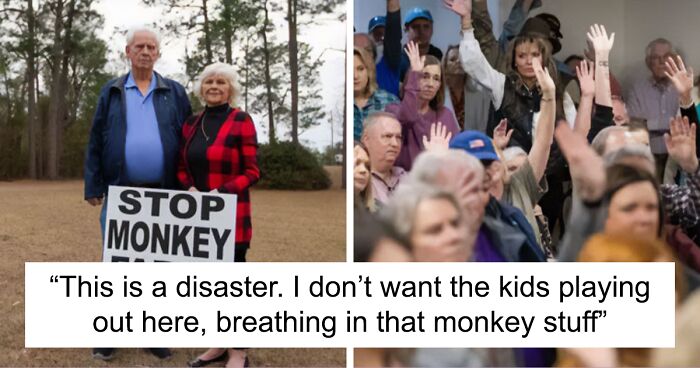
“What If One Gets Out?“: Residents Of Georgia Town Rally Against Farm To House 30,000 Monkeys
Concerns amongst a community in the US have risen amidst a proposed multi-million dollar monkey breeding facility for medical research, with people fearing potential environmental hazards, disease spread, and escapes, despite the company’s assurances of safety and economic benefits.
Local officials in Bainbridge, Georgia, USA, recently approved a start-up’s plan to build one of the largest monkey breeding facilities in the nation, worth $396 million, with a capacity of holding approximately 30,000 monkeys – double Bainbridge’s human population.
- Residents of Bainbridge, Georgia, oppose a $396 million monkey breeding facility for fears of environmental hazards, disease spread, and escapes.
- Safer Human Medicine aims to build a 200-acre facility housing approximately 30,000 monkeys for medical research, equivalent to double Bainbridge's human population.
- Local opposition includes signs reading 'STOP THE MONKEY FARM,' over 5,400 Facebook group members, and concerns about property value decline.
77-year-old Penny Reynolds, one of the city’s residents, said of the project: “It’s unreal,” as her home borders the site cleared for the 200-acre facility. “Our world is upside down,” she exclaimed.
A $396 million monkey breeding facility project has been worrying residents, fearing potential environmental hazards, disease spread, and escapes
Image credits: Anthony/Pexels
Safer Human Medicine, the company behind the project, said the long-tailed macaques would be bred and sold to pharmaceutical companies, universities, and laboratories for medical research studies, USA Today reported.
The company currently hopes to finish construction and welcome its first monkeys later this year, an animal essential to research for a wide range of diseases due to their similarities to humans.
Nevertheless, the practice has often been slammed by animal rights groups due to the arguably abusive nature of testing on animals.
In Georgia, an expanding group of locals and animal rights activists have subsequently put effort into stopping the monkey breeding plan in Bainbridge before construction begins.
65-year-old James Chestnut, a retired clay miner who lives less than a mile from the proposed building site, told USA Today: “It’s like putting a nuclear plant in your backyard. Think about what this thing is going to smell like.”
Homes and businesses around the city have put up signs reading “STOP THE MONKEY FARM”
Image credits: Alicia Devine/USA Today Network
Homes and businesses around the city have put up signs reading “STOP THE MONKEY FARM.” Additionally, over 5,400 people joined the active Facebook group “No Monkey Breeding Bainbridge, GA!”
Residents have also claimed that their property values will plummet, as they expressed fear the monkeys might spread diseases and, in the case of a major hurricane or tornado, escape, as per USA Today.
In a letter to residents, Safer Human Medicine said the monkeys housed in the facility “will not pose a threat to the citizens” and “nothing discharged from our facility will create an environmental hazard or risk.”
It further stated that worries about breakouts, the smell, noise, and the monkey’s care are concerns they’ve considered and have addressed in the facility’s design. It continued to read: “We look forward to being a great neighbor as we get to know you all in the community.”
“It’s like putting a nuclear plant in your backyard. Think about what this thing is going to smell like,” a resident said
Image credits: Alicia Devine/USA Today Network
Penny, whose house is next to the project, said: “This is a disaster. I don’t want the kids playing out here, breathing in that monkey stuff. What if one gets out? That’s all it takes.”
Nevertheless, Rick McCaskill, executive director of the Development Authority of Bainbridge and Decatur County, tried to reassure: “It’s a cross between a maximum security prison and a daycare.”
Safer Human Medicine released documents that showed monkeys in rooms surrounded by toys and obstacles. The controversial company also explained in a letter that the primates will be secured in enclosures but will have ample space “to forage, eat, and play.”
The Centers for Disease Control and Prevention will reportedly test any monkeys brought in from overseas to try and catch cases of tuberculosis, salmonella, or other infections. Though, it’s not a failsafe process. The company says it would take up to nine years before the complex reaches its goal of 30,000 monkeys, as per USA Today.
Located in Bainbridge, Georgia, USA, the 200-acre facility will be built by Safer Human Medicine
Image credits: Alicia Devine/USA Today Network
Executive director Rick claimed the unwanted facility would bring more than 250 good-paying jobs, with wages starting at $18 to $22 an hour and full benefits, making it the highest base pay in the county.
In return, the company would benefit from a no-charge lease of 200 acres and a 100% tax abatement for the first 10 years, Rick revealed. As part of the agreement, Safer Human Medicine promised to invest in the greater community through buying from local businesses, educational collaborations, co-ops, and internships, USA Today reported.
The sweet deal was conducted in secrecy from constituents, as the County and city officials reportedly had to sign non-disclosure agreements, so the public wasn’t notified until the day the deal with Safer Human Medicine was inked.
Rick justified the decision: “That’s how these big projects work.”
70-year-old David Barber, a semi-retired farmer whose property is less than 1,000 feet from the proposed facility, wasn’t convinced, as he told USA Today: “They should have talked to us. We shouldn’t have had to find out about this in the paper.”
Safer Human Medicine previously had to relocate some 4,000 dogs of the beagle breed from a breeding facility in July 2022 after a series of animal welfare violations, according to court records.
It will become one of the largest monkey breeding facilities in the nation with a capacity to hold approximately 30,000 monkeys
Image credits: Safer Human Medicine
The United States Department of Agriculture (USDA) inspections over the previous year had found that the dogs were underfed, received insufficient health care, and were euthanized without anesthesia, USA Today reported.
Safer Human Medicine said in a statement provided to USA TODAY that the company is committed to building a safe state-of-the-art facility that fills a critical need in the pharmaceutical research field.
The statement read: “The leadership of Safer Human Medicine have dedicated their careers to responsibly managing and caring for animals in medical research.
“We are all proud to have done our part in making safe, life-saving medicines a reality [for] Americans and their families.
The company said the monkeys would be bred and sold to pharmaceutical companies, universities, and laboratories for medical research studies
Image credits: Safer Human Medicine
Image credits: Safer Human Medicine
“We have always been committed to operating responsibly and ethically throughout our many decades in this field.”
Company President David Johst said in an interview: “We’re building this from the ground up, and we’re going to do it to the highest standards.
“Give us a chance. Let us show you how we can do this right and how well we can do this.”
Last week, during a meeting with Bainbridge residents, Amy Meyer, People for the Ethical Treatment of Animals (PETA) manager of primate experimentation campaigns, said the nonprofit organization’s lawyers were looking into the deal struck between the company and the local government but encouraged locals to speak to their officials and show up in large numbers at city and county commission meetings.
The company currently hopes to finish construction and welcome its first monkeys later this year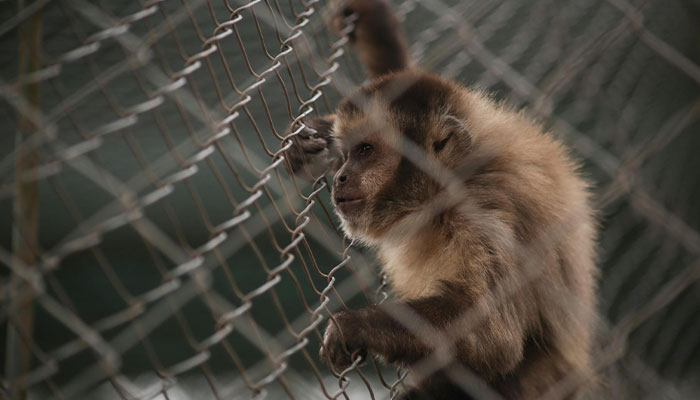
Image credits: Marina Chocobar/Pexels
Following the meeting, the agreement granting Safer Human Medicine tax breaks was voided because the commission didn’t properly notify the public before approving it in December 2023.
Decatur County Chairman Pete Stephens said: “I looked at the tax dollars this would generate; I should have looked harder at the human side of it. I’ve learned a lesson.”
Upon the meeting’s conclusion, retired miner James said he was proud of his friends and neighbors for their unified response to the project, which he believed was what led the county to its decision.
He told USA Today: “I hope it keeps going this way. We can’t give up now. We gotta keep telling them, ‘We don’t want this in Bainbridge.’”
In Georgia, an expanding group of locals and animal rights activists have put effort into stopping the monkey breeding plan
Image credits: Alicia Devine/USA Today Network
Image credits: Alicia Devine/USA Today Network
Last year, in a suburb located in Houston, Texas, residents quickly put a halt to a project to build a monkey farm, citing concerns over waste, pollution, and treatment of the animals.
Critics have said using monkeys as research subjects is immoral, but the National Academies of Sciences, Engineering, and Medicine maintain that based on the “current state of the science,” there are “no alternatives that can fully replace nonhuman primates.”
Lisa Jones-Engela, a primatologist who experimented on monkeys for decades, shed a somber light on the science, as she told The Guardian back in 2022: “Anything and everything these monkeys were exposed to or infected with as they move along this ‘supply chain’ has the potential to spill over into humans.”
Now advocating for animal rights, she admitted: “When I see monkeys in individual cages, I see you’ve taken away the thing that’s most important to a macaque. You’ve taken away their ability to have a relationship.”
5,400 people joined the active Facebook group “No Monkey Breeding Bainbridge, GA!”
Poll Question
Thanks! Check out the results:
Explore more of these tags
30.000 monkeys? How many do you need to kill* for medical research? *There is no retirement plan for elderly monkeys
I don't like the idea of them dying for medical research, but would you rather get pharmaceuticals that haven't been tested? Because that's the alternative, at least at this point. On a different note I find the comments about "omg they're gonna smell" or "what about the disease risk" ridiculous. it could be a piggery or a cattle farm, they're gonna stink as bad or worse. And I'm pretty sure they'll be doing their best to make sure the monkeys *don't* have diseases because they need them to be "clean" before they pass them on to medical testing.
Load More Replies...While I'm all for research to learn more about and find a cure against diseases. I am also the opinion that the very strict german ethics rules regarding the use of research animals, and apes specifically, should be standard world wide! A facility for 30.000 apes does not sound like a place where animals can live a good life.
I couldn't agree more. This absolutely turns my stomach.
Load More Replies...30.000 monkeys? How many do you need to kill* for medical research? *There is no retirement plan for elderly monkeys
I don't like the idea of them dying for medical research, but would you rather get pharmaceuticals that haven't been tested? Because that's the alternative, at least at this point. On a different note I find the comments about "omg they're gonna smell" or "what about the disease risk" ridiculous. it could be a piggery or a cattle farm, they're gonna stink as bad or worse. And I'm pretty sure they'll be doing their best to make sure the monkeys *don't* have diseases because they need them to be "clean" before they pass them on to medical testing.
Load More Replies...While I'm all for research to learn more about and find a cure against diseases. I am also the opinion that the very strict german ethics rules regarding the use of research animals, and apes specifically, should be standard world wide! A facility for 30.000 apes does not sound like a place where animals can live a good life.
I couldn't agree more. This absolutely turns my stomach.
Load More Replies...
 Dark Mode
Dark Mode 

 No fees, cancel anytime
No fees, cancel anytime 






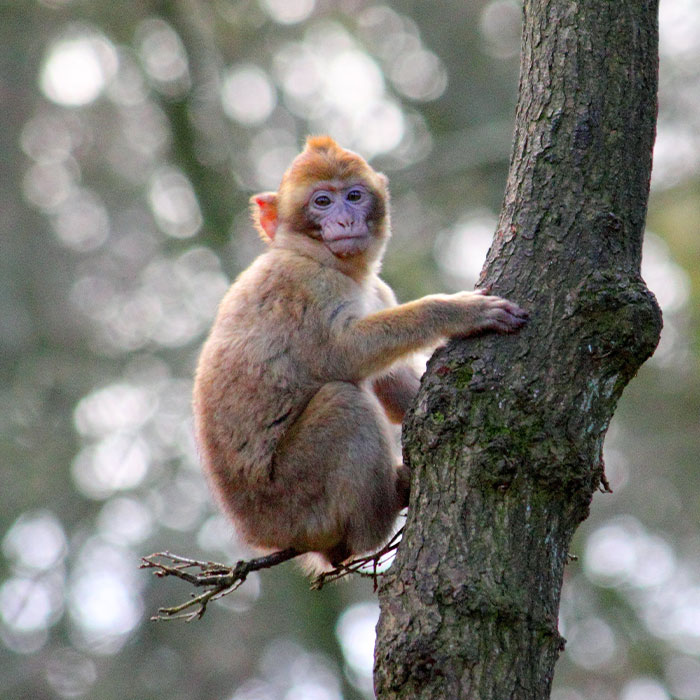
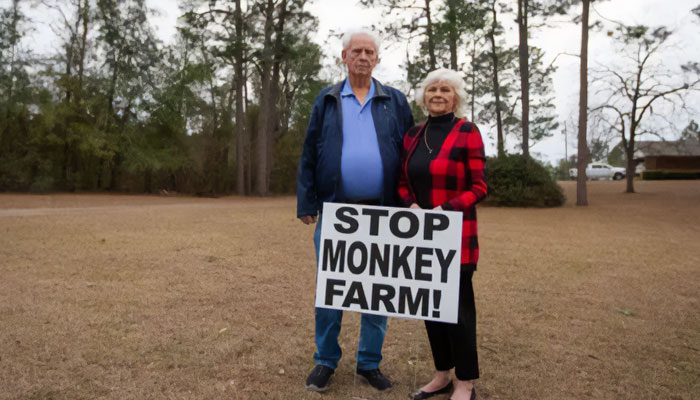
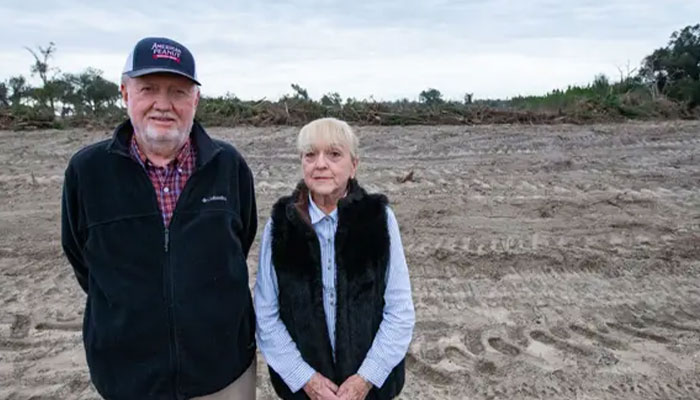
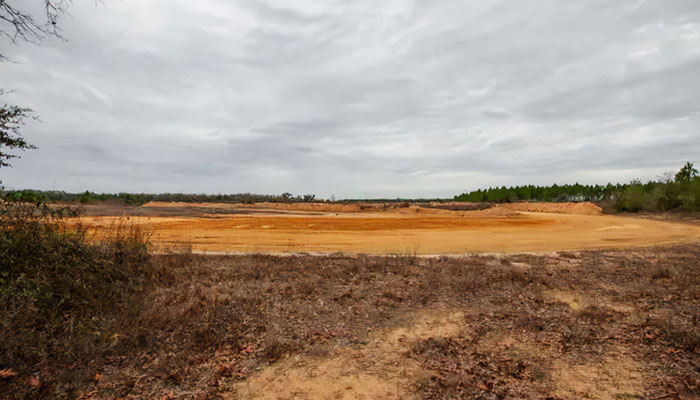
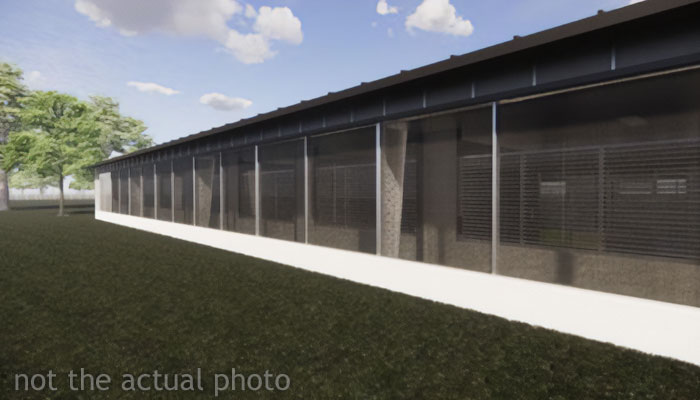
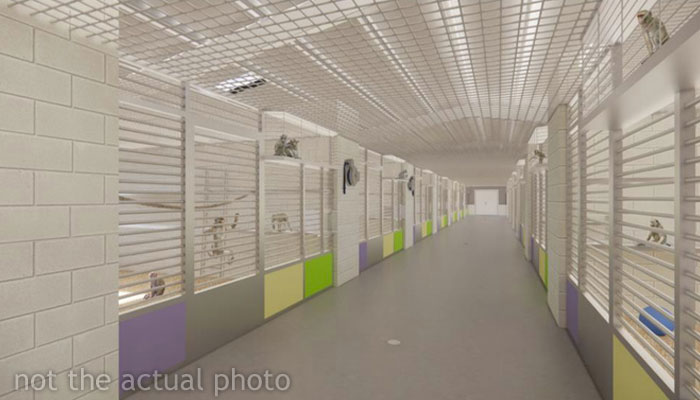
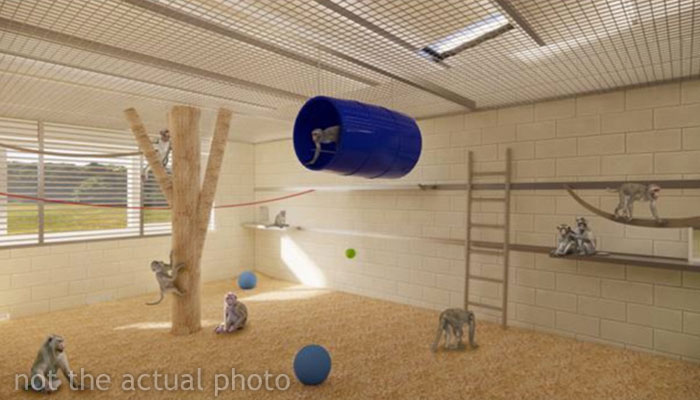
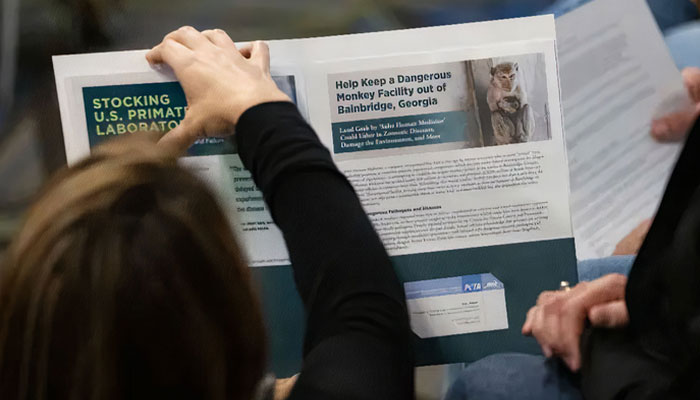


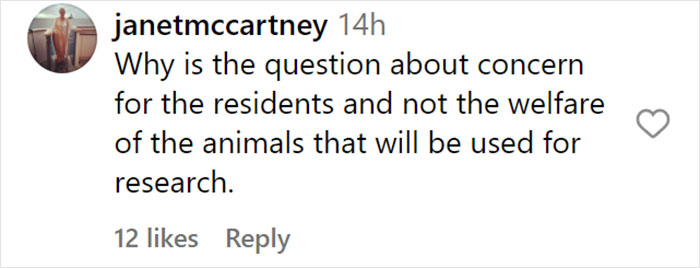

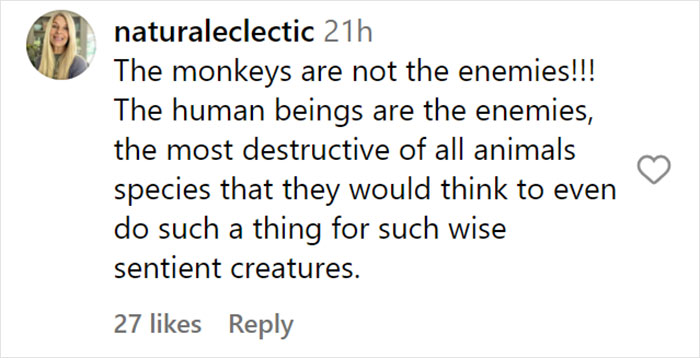

















































36
35